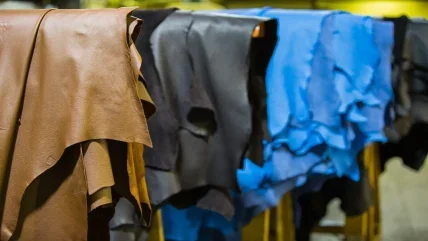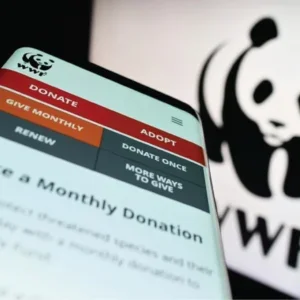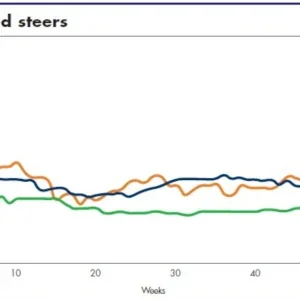
The Covid-19 pandemic has spread worldwide. While scientists rush to find a vaccine to fight the virus, the global economy has inevitably been affected. According to the International Monetary Fund (IMF), the world’s economy might feel a contraction of 4.9% in 2020. Besides, as stated by IMF, the world is expected to lose around $12.5trn by next year. The prediction is already being considered the worst economic crisis since the Great Depression of the 1930s.
The leather industry has also been affected by the economic downturn. Losses are still being calculated. However, many of the main producers in the world agree that the demands have already fallen sharply.
Despite the situation, tanneries are still manufacturing. The question is: will the pandemic also affect their future investments in sustainability, an area that any factory truly committed to better processes usually allocates a reasonable slice of its budget?
Uncertain times
One of the world’s main leather exporters, Italy, was one of the nations that suffered the most from the pandemic, with the country registering over 34,000 deaths caused by Covid-19 at the time of writing. The Italian economy was destabilised and so was its tanning industry.
Luca Boltri, vice-director of Unic (Italian Tanners’ Association), says that in 2019 Italy recorded $3.4bn in export value in leather, so manufacturers were quite optimistic about 2020. Boltri calculates that 2019 turnover of the Italian tanning industry was around €4.9bn ($5.5bn), with an 8% loss as compared with the previous year. According to Unic’s representative, the sector ended the past year with a decrease in turnover, but 2020 started with some positive signs. He guarantees the sector was confident that a recovery would occur. The Covid-19 pandemic has curbed their enthusiasm though.
“The first-quarter production level was down by 21% on a yearly basis and the current forecast for the whole year is -30%. But it could be even worse; it will all depend on the market development in the next few months. All will be determined by when and how consumers will go back to shop and what kind of spending attitude they will have,” he worries. “We hope the market goes back to normal pre-virus conditions as soon as possible. However, there are so many uncertainties that make it extremely difficult to predict what is going to happen.”
Even if the current situation has been hitting the Italian tanneries hard financially, Boltri guarantees Unic will not stop pushing tanneries to keep sustainability as a priority, as the association sees it as an essential investment. “That’s a topic that is too important for us, even if it is a remarkable cost in our budget now. Every year, a percentage ranging from 4% to 10% of our turnover is invested in sustainability and we will not stop it,” he highlights. “We understand that sustainability is not a ‘fashion trend’ that will pass. We see it as an integrated part of the usual management of a tannery nowadays.”
Dumped at the landfill
In 2019, the US exported $1bn of its leather production. This amount would have been increased for this year but Covid-19 changed projections. As Stephen Sothmann, president of Leather & Hide Council of America, explains, production of US hides and skins is a result of meat demand, which was very high in 2019 and continued in 2020 despite the impact of the pandemic. “US hides and skins, however, have been negatively impacted by the lack of leather demand globally,” Sothmann says. He recalls that, in 2010, an estimated 5.5 million US hides were produced, but did not enter the leather value chain. “Unfortunately, the vast majority of those hides likely ended up in landfill; the same trend is expected for this year, if not worse,” he notes.
Sothmann says he is not aware of any specific investments in sustainability or other technologies that have been affected by the Covid-19 crisis in the US. He emphasises that all tanneries are actively looking for ways to continue production in the safest possible way for their employees and customers though.
In South America, Brazilian tanneries believe that the pandemic will change the way people consume, which could be good for manufacturers committed to sustainable practices.
As another great leather exporter, Brazil has also felt the economic impact of the pandemic. According to José Fernando Bello, the Centre of the Brazilian Tanning Industry (CICB) executive president, in 2019 the country exported 80% of its production and sold $1.161bn of leather goods. For 2020, the prediction was for an increase in this number. “The past few years have been quite challenging for the leather industry worldwide. However, we were predicting a growth of 4% in our exports [in dollars]. Everything has changed because of Covid-19 though,” says Bello. “It is a bit early to talk about numbers, but it is possible to say there will be a substantial reduction in our figures for this year.”
Even with the difficulties brought by coronavirus, the Brazilian tanning industry seems to have a positive outlook for the future. Bello assures that the pandemic has not affected the capacity of production of most of the tanneries in Brazil. “This is due to the recycling nature of the leather industry, which gets its raw-materials from food companies. They do not have much choice but to process the skin, so it won’t get wasted. The tanneries did not stop manufacturing, so specialised staff were kept the same as the sustainable facilities. The production is still at its full capacity,” Bello explains.
New consumers
Bello believes that the pandemic has altered the way people perceive life, which could eventually be a good opportunity for the tanneries to show how important they can be on a planet that seeks more sustainable processes and products. “The Brazilian tanneries already realised that the world has definitely been changed by this new coronavirus. Our habits must change, so everyone should think about our consumption and our values from now on, so this is a very important moment for the leather industry,” he observes. “This is a time when people will start purchasing with more attention, with a purpose, which is good for the leather industry considering people will give priority to sustainable and more durable products, made by companies committed to fair and clear practices, respecting communities, staff and the environment.”
The executive president of CICB agrees that this is a perfect time for the leather industry to take back its place, to approach these new consumers and show its attributes. “We are very focused in Brazil. We have made an extraordinary effort towards sustainability. We are aware sustainable practices have to be absorbed into companies’ DNA. It has to be something organic, otherwise it won’t work out,” Bello highlights.
He warns, though, that only the companies that have sustainability at the forefront are able to produce actual sustainable products, should the world be in the middle of a pandemic or not.
One of the largest tanneries in the world, with 22 production sites and five distribution centres, Brazilian JBS Couros shares CICB’s opinion that the pandemic might change consumption habits. Kim Sena, the company’s sustainability manager, believes that Covid-19 has made billions of people reflect on what really matters in life and also how important being more environmentally friendly is. The pandemic, according to Sena, made consumers more aware of what they are buying and why they are buying it.
“We strongly believe that, in the long term, people will be more concerned about their consumption behaviour and more conscious about how frantic consumerism can cause irreparable damage to the planet,” he says. “That’s why, at JBS Couros, we are totally focused on producing high-quality leather while causing the least impact possible,” he adds, referring to its most important project on sustainability, Kind Leather, as a key player on this mission.
A “revolutionary project” according to Sena, Kind Leather is a new concept in leather production. The model, which started to be developed in 2017, gathers the current best practices in supply chain mapping and hide traceability. “Kind Leather aims to design the product from the beginning, focusing on eco-efficiency, which means an economy of natural resources and less environmental impact. As leather is a natural material, its surface often has parts that tend to be less used because of some imperfections, so planning the process in advance through a system that enables these areas to be removed while still being used for other purposes like production of collagen or gelatine is an efficient way of creating by-products. Again, all of this means less use of resources and less solid waste generation,” he expresses.
Integrated efficiency
For JBS Couros, Kind Leather is a project that represents a new concept. The company describes it as an open platform that brings together best practices and technologies, such as cleaner chemicals, leaner industrial practices, and better mechanisms to ensure transparency and traceability in the chain of production. JBS Couros also claims its project is aware of animal welfare as well as deforestation matters. Finally, Kind Leather consists of the most efficient practices for cutting finished leather, “which proves the project’s integrated efficiency approach”, Sena promotes.
The sustainability manager of JBS Couros is aware that tanneries will have to do more than just installing solar panels or recycle industrial waste to be considered sustainable in the near future. Sena acknowledges Covid-19 has brought a situation in which the industry is struggling to survive. Balancing the cash flow, paying bills, honouring debts and keeping the business running until demand returns to reasonable levels is naturally important. However, as he advises, it is important to note that companies leaving sustainability aspects to be discussed in two years’ time, for example, have to be aware that it will probably be too late. “Making processes more efficient and implementing technological changes are arduous tasks. More than that, they are tasks that require time and planning. As a piece of advice, I would say it is important to use this moment to plan and structure projects to reduce the environmental impact of the manufacturing process, even if the heaviest investments are to be made at a future date,” he recommends.
As Sena summarises, everything JBS Couros does in the future should have a sustainable perspective as a foundation, as sustainability is a high priority for the company.






